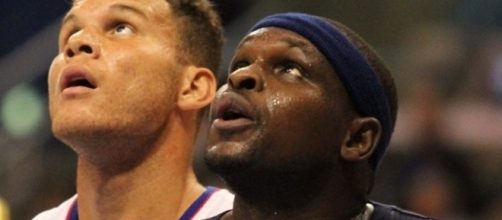Sacramento Kings veteran power forward Zach Randolph escaped charges of Marijuana possession after pleading no contest to the misdemeanor resisting arrest charge Wednesday. Initially, TMZ Sports reported that the charges against Randolph were reduced to misdemeanor possession and resisting arrest. He was initially arrested for felony possession with intent to sell marijuana in August in Los Angeles. According to TMZ, Randolph was sentenced to 150 hours of community service as part of a diversion program.
With the plea deal, the resisting arrest conviction will be wiped from Randolph’s record if he completes the hours and avoids another case for 12 months.
The community service was way better than a one-year imprisonment if he’s convicted of both misdemeanor possession and resisting arrest. Earlier, Randolph’s camp denied the charge of felony possession with intent to sell marijuana, saying it was “false and misleading.” According to TMZ, found in Randolph’s possession was two pounds of marijuana at the time of his arrest.
Randolph signed two-year deal with Kings
Randolph’s arrest came weeks after he signed a two-year, $24 million contract with the Kings in the offseason after playing eight seasons with the Memphis Grizzlies. Last season, two-time All-Star Randolph averaged 14.1 points and 8.2 rebounds. By joining the Kings, Randolph was reunited with former Grizzlies coach Dave Joerger, who coached Memphis for three seasons.
During his time with the Grizzlies, Randolph averaged 16.8 points and 10.2 rebounds. He will provide the Kings with frontcourt depth as he plays alongside young big men Willie Cauley-Stein, Kosta Koufos and Skal Labissiere.
Randolph avoided NBA lifetime ban
With the downgrading of his cases from felony to misdemeanor and his subsequent plea deal, Randolph can now heave a sigh of relief as he avoided a possible lifetime ban from the NBA.
Earlier, the Memphis Commercial Appeal reported that Randolph could suffer the same fate as that of his former Grizzlies teammate OJ Mayo, who was banned from playing in the NBA for repeated violations of the league's anti-drug policy.
The league’s collective bargaining agreement (CBA) indicates that a player will be dismissed and disqualified from the NBA if he is convicted of a crime involving the felony distribution of marijuana, the initial case filed against Randolph. A player can also be banned if he pleads guilty or no contest to selling marijuana.


